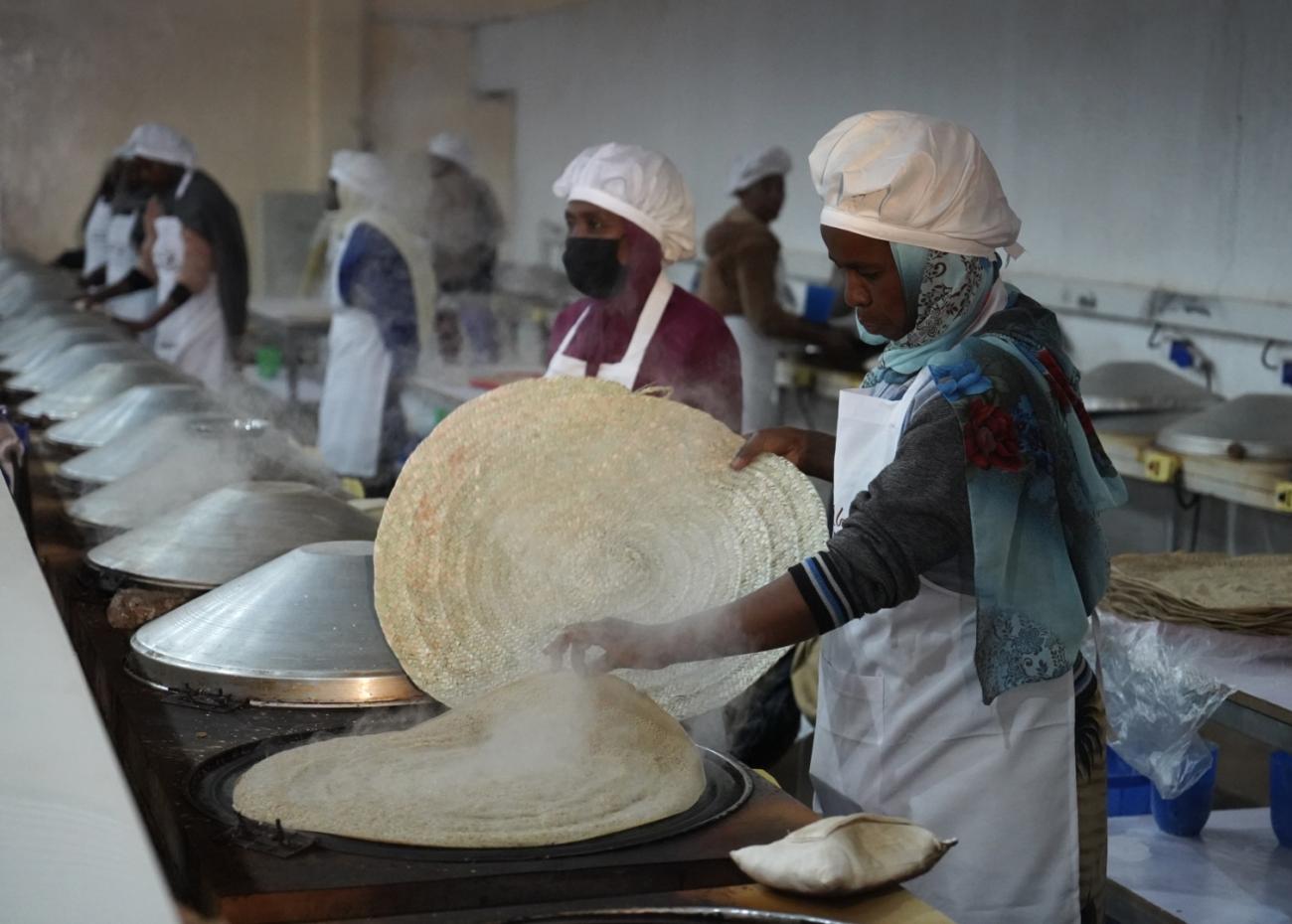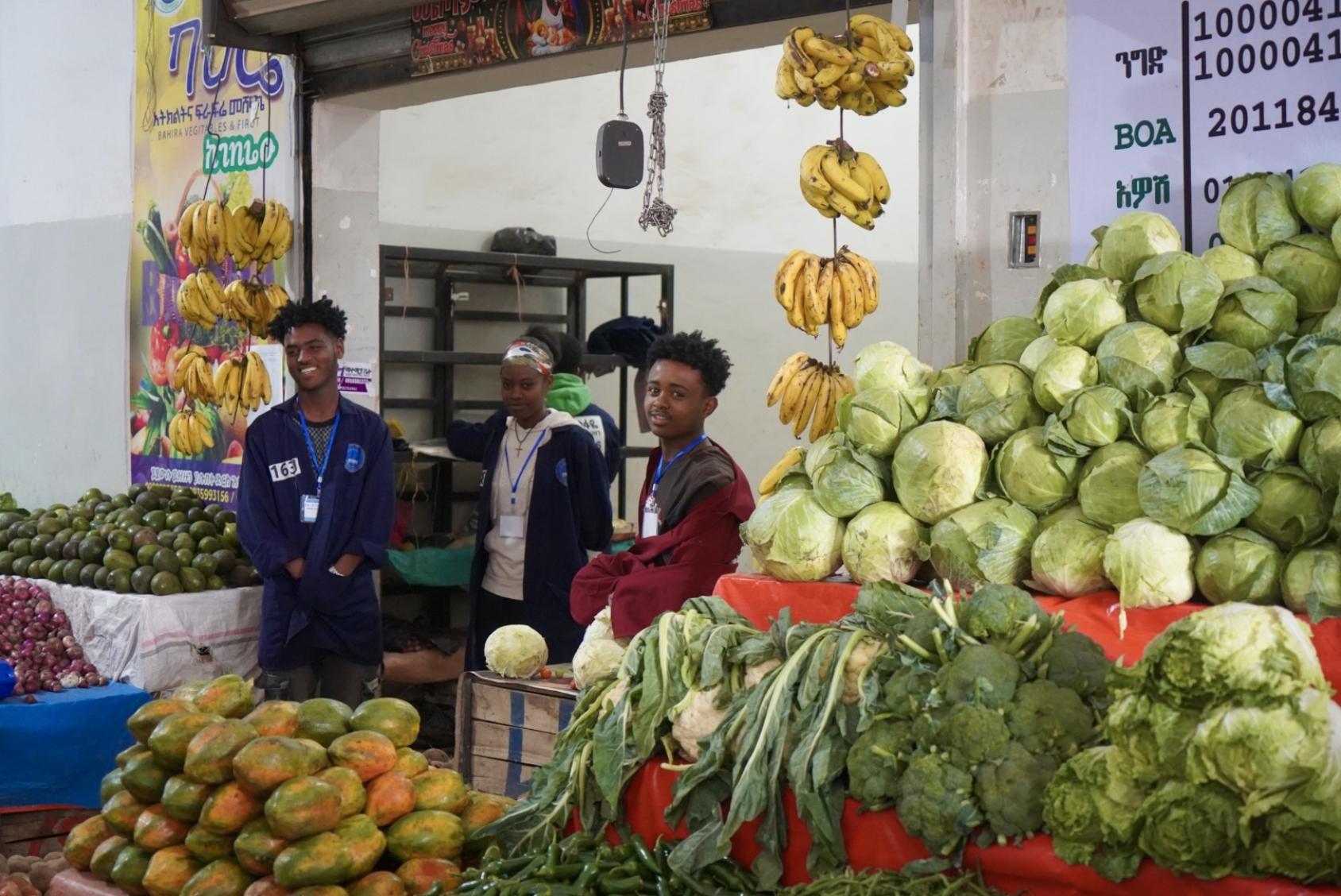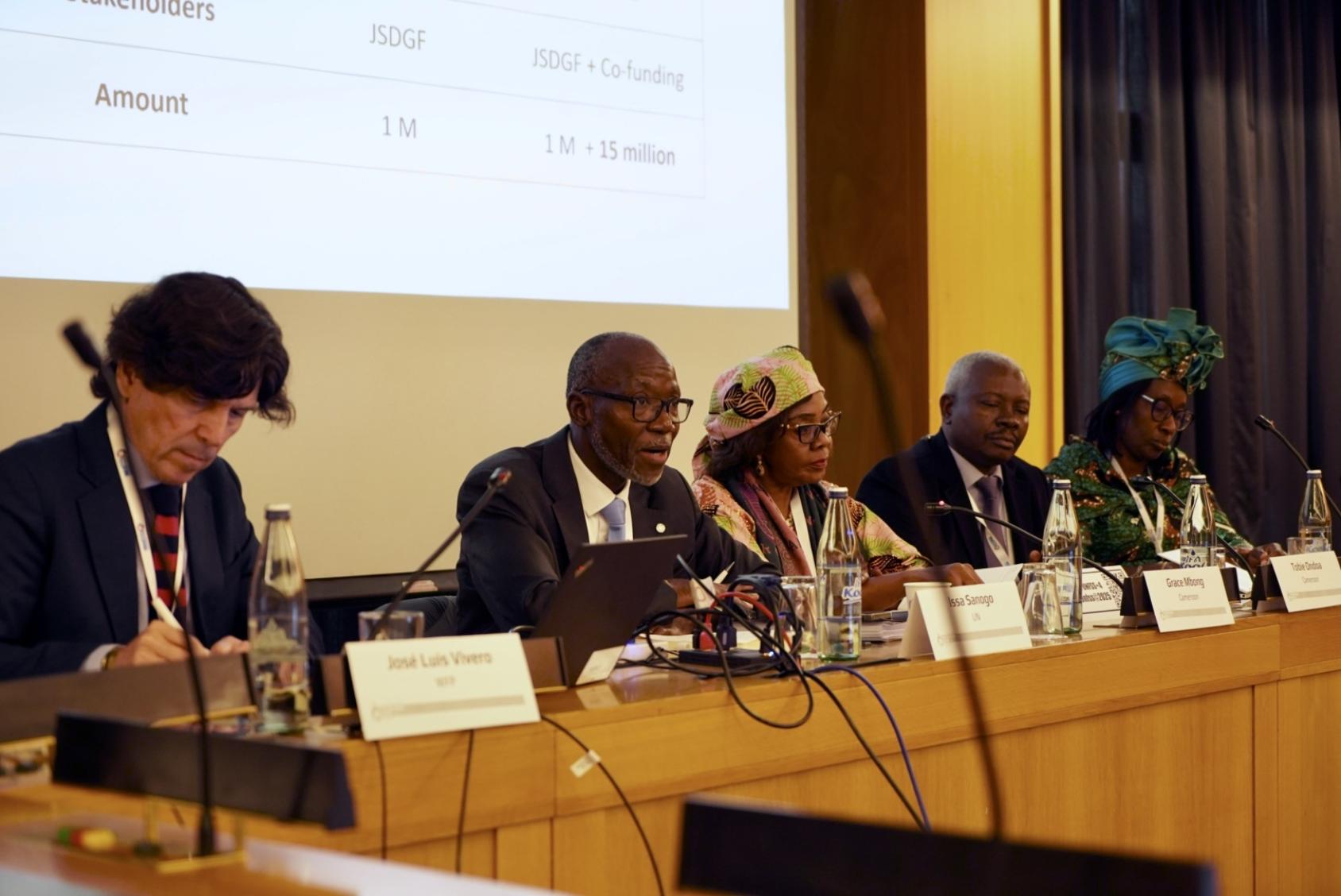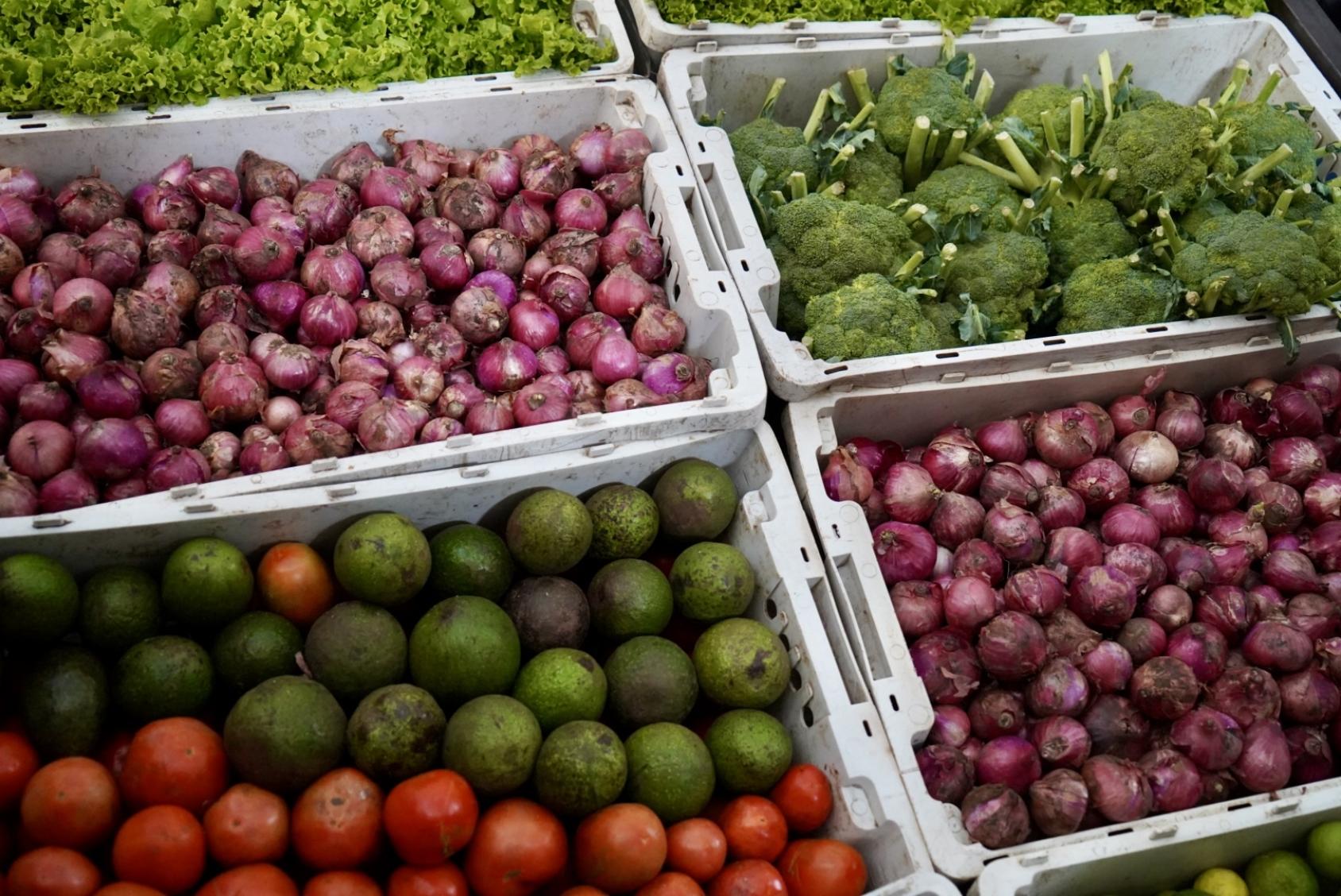Africa is Setting the Table: Will the World Show Up?

Following the recent UN Food Systems Summit +4 Stocktake (UNFSS+4), DCO Regional Director for Africa Yacoub El-Hillo, reflects on Africa’s readiness to lead the transformation towards food sovereignty and the urgent call for global investment to match that ambition.
Atop the hills surrounding Addis Ababa, the city where I live, the essence of food sovereignty, people’s right to define and control their own food systems, truly comes to life. Inside a spacious hall, about 50 women stand over circular griddles, pouring batter, smoothing it into perfect circles, and covering it with lids. Within seconds, another batch of Ethiopia’s staple flatbread, injera, is ready - made with care by the Gulele Injera Making Women’s Group.
But this is more than a bakery. These women are food system builders. They source teff directly from local farmers and manage citywide delivery platforms. Over 100,000 injera leave this facility each day, feeding schools, hospitals, and families across Addis. It’s a women-owned enterprise that brings jobs, nutrition, dignity and economic power into local hands.
This is what food sovereignty looks like in practice, and it’s not limited to Ethiopia.

A continent in motion
Across Africa, communities and governments are reshaping food systems. From women-led cooperatives in Addis Ababa to policy reforms in Nigeria, Senegal and Tanzania, and cross-border food systems programmes in the Central Sahel; food sovereignty is no longer a distant goal. It’s taking root across the continent. The question is no longer whether Africa can lead this transformation, but whether investment will keep pace.
At the recently concluded UN Food Systems Summit +4 Stocktake (UNFSS+4) in Addis Ababa, leaders and partners assessed progress and forged partnerships to accelerate this change. What I witnessed is a continent ready to take control of its food future.
Breaking the import habit
Africa’s reliance on food imports has drained resources and left countries vulnerable to price shocks. Senegal’s annual US$1.8 billion spent on staple imports and Mozambique’s reliance on imports for 80 per cent of its food demonstrate the scale of this challenge.
Furthermore, trade barriers and unfair prices often push small farmers to the margins, especially in low- and middle-income countries, as UN Deputy Secretary-General, Amina Mohammed highlighted during UNFSS+4.
But the narrative is changing. Countries are advancing food sovereignty by implementing national policies focused on domestic production, developing inclusive value chains, and exploring innovative financing solutions.
Emphasizing this view at UNFSS+4, Tanzanian Minister of Foreign Affairs and East African Cooperation, Mahmoud Thabit Kombo (MP), underscored the need for Africa to reduce reliance on external resources and focus on building strong, internal, and resilient food systems.

This is not just farming, it’s nation-building
In Tanzania, government buying is shifting toward smallholder farmers, particularly through school feeding programmes and farmer cooperatives. South Africa is working to preserve local crop varieties by identifying indigenous crops and scaling up community seed banks.
In Mali, authorities aim to re-establish the country as the “breadbasket of West Africa,” revitalizing five key value chains and supporting over 800 local farmer groups. Niger aims to modernize agriculture with youth-led agro-tech and coal energy infrastructure to tackle migration by turning farming into a viable, dignified livelihoods.
Meanwhile, Ethiopia is investing in domestic fertilizer production and seed research to reduce import dependence and strengthen seed sovereignty. And back in Gulele, those women making injera are connecting local production to global markets.
Many countries are also building inclusive value chains (the process through which food moves from farmers to consumers), ensuring that smallholders, women, and youth can access markets, earn fair incomes and drive local economic growth.
In Nigeria, for example, the UN-supported Value Chain Development Programme has boosted farmer productivity by 150 per cent and raised incomes by 25 per cent. The programme’s success stems not just from its scale but from its deep integration with Nigeria’s national development plans, as explained by International Fund for Agricultural Development (IFAD) President Alvaro Lario.

Despite these successes, scaling such models requires significant investment.
In West Africa, food systems programmes, jointly led by the governments of the Central Sahel and the UN, have the potential to create up to 450,000 jobs, most for youth and women, while reducing annual food import bills by $900 million. Financing this is a smart, high-return investment.
At UNFSS+4, Cameroon presented bankable agricultural projects to over 20 partners, backed by the UN. Resident Coordinator Issa Sanogo, who leads the UN team in Cameroon, noted that the proposals focused on creating value, generating jobs, and driving climate-smart solutions, while emphasizing the importance of bringing private sector actors into the fold to expand these efforts to the next level.
Financing is the missing ingredient
As the IFAD chief reminded us, of the world’s 44 Least Developed Countries, 32 are in Africa. The cost of transforming food systems is steep, estimated at 40 per cent of Gross Domestic Product (GDP) in many of these countries. “No country can bear that burden alone. And no country should have to,” IFAD’s Lario said.
Yet only 15 per cent of food systems’ financing goes to low-income countries, where the transformation is most urgent and where returns, social, environmental, and economic, could be highest.
Strong financing commitments are possible, as Cameroon’s investment pitch at UNFSS+4 demonstrated. It sparked immediate interest: the Global Flagship Initiative for Food Security (GFIFS) announced plans to partner with the Joint SDG Fund to scale up Cameroon’s food value chains and create more predictable markets.
We need more moments like this, and we need them everywhere.

The roadmap is African, but the system is not
Africa has a clear roadmap. Initiatives like the Comprehensive Africa Agriculture Development Programme, the Malabo Declaration, and the African Continental Free Trade Area (AfCFTA) show strong political will to end hunger and boost intra-African trade.
These frameworks are guiding national and regional action, with Resident Coordinators across the continent supporting these efforts, connecting governments, communities, and capital.
Cameroon’s successful pitch clearly showed this engagement, as does the convening power of Central Sahel Resident Coordinators helping drive a US$4 billion programme for food, jobs, and stability.
And it echoes the Secretary-General’s belief that the future of food is the future of humanity.
But without fair and timely financing, that future remains out of reach for too many.
Africa is not waiting. It never will. It is taking the reins of its own future: one injera, one avocado, one cooperative, one investment at a time.
What’s needed now is the global commitment to help take these efforts further, faster and wider.
This blog was written by DCO Regional Director for Africa Yacoub El-Hillo.













